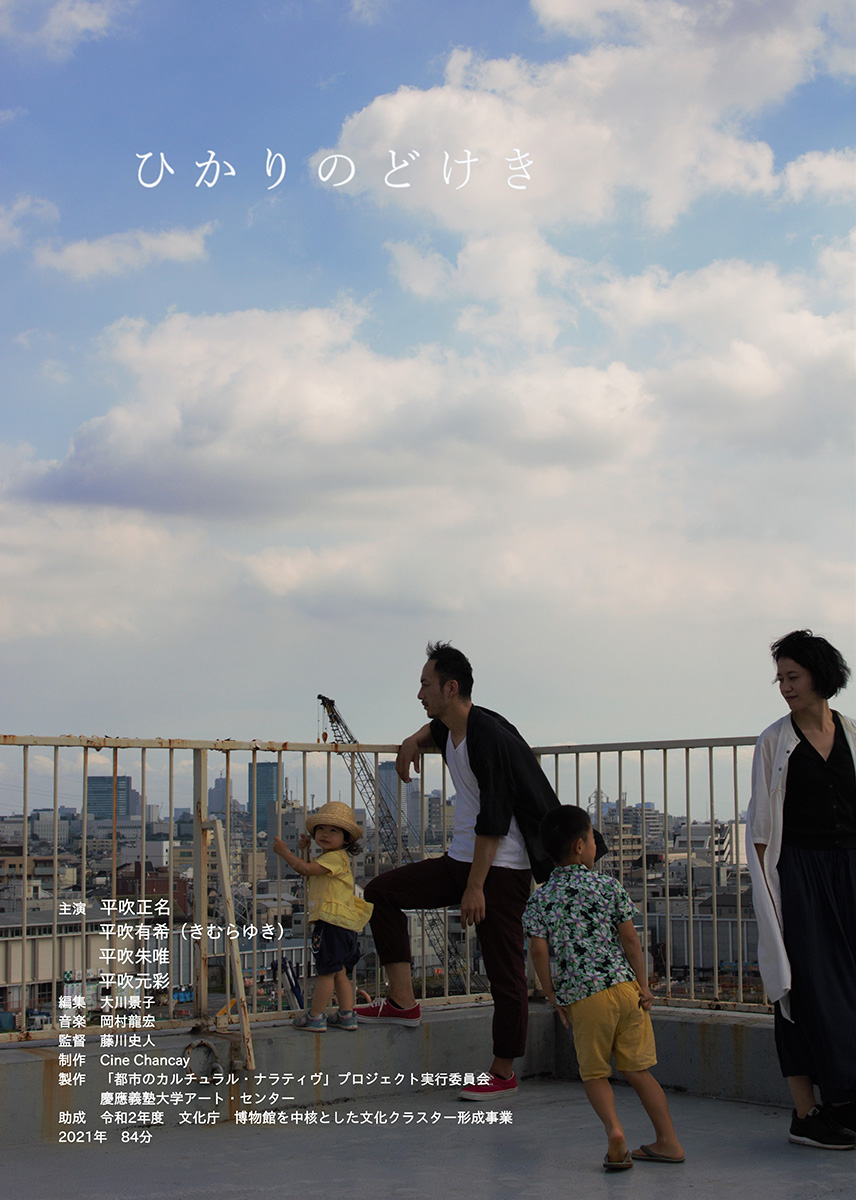
At the age of 83 and not having made a narrative film in over 20 years, Sadao Nakajima decided to step back into the director’s chair in 2019 with a classic chambara in Love’s Twisting Path, an old-fashioned samurai drama taking place in the turbulent years of the Bakumatsu at the end of the Edo era. More than just a behind the scenes documentary, Tatsuya Matsubara’s YU-GEKI~side story of “Love’s Twisting Path”~ (遊撃 -「多十郎殉愛記」外伝-, Yu-Geki -Tajuro Junai-ki Gaiden-) explores the film’s production but also reflects on the director’s long career and the changing trends of the Japanese film industry.
Changing times do seem to be Nakajima’s primary motivation, wanting to pay tribute to Toei’s Kyoto studios once home to its mainline of period pieces produced for the big and small screens. These days, however, such productions are few and far between. Of course, Japan continues to produce historical dramas in large numbers but they tend to be just that with swordplay a secondary concern. Nakajima had wanted to resurrect this dying sector of the industry in part because he felt sorry for the specialist performers who can no longer support themselves with samurai movies alone.
Paradoxically this becomes a secondary problem for the production team as the pool of actors with training in stage combat becomes ever smaller, Nakajima forced to hire early career trainees while star Kengo Kora puts in overtime vigorously training to master the sword skills needed to seem convincing as a jidaigeki lead. Along with the decline of classic chambara, itself perhaps an expression of studio system as it existed before the 1970s, goes all the skills that accompany it from swordsmen to costumiers and makeup artists who know how to work on period features giving rise to the worry that the expert techniques honed over lifetimes will eventually be lost.
Aside from the problems securing their creative team, Nakajima also runs into funding difficulties with backers unwilling to invest given the director’s age and poor health worrying that he may not be able to complete the project. Ironically this places further pressure on the production as Nakajima is forced to shorten the script and shooting time packing in as much as humanly possible per day. A young production assistant is beginning to feel bad about having to explain to him that so many things just aren’t possible while he too grows frustrated wandering around the mountains looking for a particular temple he remembers from his time at the studio but unable to remember exactly where it was or how to find it. Meanwhile he’s ably assisted by his former pupils including Kazuyoshi Kumakiri (Mukoku, Antenna, Sketches of Kaitan City) who acts as his AD along with Nobuhiro Yamashita (Linda Linda Linda, Over the Fence, Hard Core) who also visits the set
It’s the presence of these pupils that Nakajima eventually hints makes his life worth living others suggesting that so many people wanting to learn from him gives him a sense of purpose and validation. Love’s Twisting Path was intended to be his final film, but asked if he’d have an idea for any more he likens himself to an elderly Musashi Miyamoto, the legendary swordsman, who became withered with age but faced a constant stream of young challengers each excited to fight him while he too saw it as a way to prove to the world that he still existed.
Despite the tremendous effort put into its production, Love’s Twisting Path did not do as well as Nakajima had hoped at the box office leading him to blame himself wondering if he was too focussed on his own interests and understandably deflated having invested so much into the project hoping to kickstart a revival of classic jidaigeki that would revitalise the old Toei lot. Then again this feeling of not quite having lived up to his aspirations might contribute to a sense of wanting to try again with another film if only it had not been for the advent of the global pandemic. Journeying through his career history, Matsubara finds Nakajima a contrary figure, rebellious and frustrated even then in the barriers erected between himself and his art ,the films he wanted to make shot down by studio execs while he tries his best to inject a characteristic sense of reality into a series of programme pictures, contemporary yakuza films, action dramas, and finally chambara which he claims never to have liked in the first place. In the end it’s all about love, Nakajima’s son insists seeing something of his father’s romanticism in his films but also his deep love of cinema and of the riches to be found in the artistic legacy of the Kyoto studios.
YU-GEKI~side story of “Love’s Twisting Path”~ screened as part of Osaka Asian Film Festival 2022.
Original trailer (no subtitles)


















